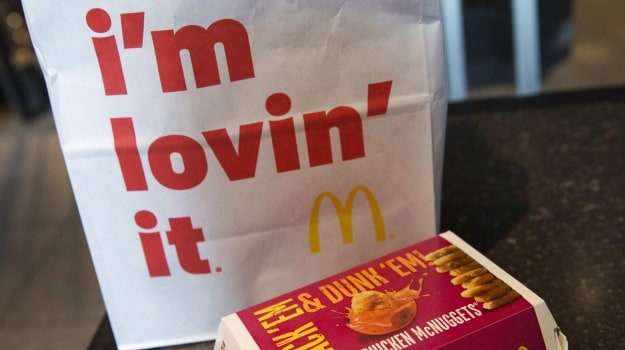McDonald's promised not to buy from suppliers that clear primary forest and other areas with high conservation value, as well as peatlands. It also said human rights must be respected and conflicts over land use resolved through a balanced and transparent process.
The multinational company said it would begin developing specific time-bound targets for the raw materials it sources this year and would help smallholders, farmers, plantation owners and suppliers to comply with its commitment.
"Making this pledge is the right thing to do for our company, the planet and the communities in which our supply chain operates," said Francesca DeBiase, senior vice president of McDonald's worldwide supply chain and sustainability.
Like many other international food, cosmetics and commodity giants, the company - famous for its burger restaurants - has come under pressure from activists to make its business environmentally and socially sustainable.
The Union of Concerned Scientists (UCS), a U.S.-based advocacy group, said the pledge made McDonald's the first global fast food chain to promise to eliminate deforestation from its worldwide supply chain, going well beyond the palm oil commitments made by competitors. "The sheer scale of McDonald's commitment includes significant potential for change, pushing the industry to implement new environmental standards across the board and ultimately reducing climate emissions," said UCS analyst Lael Goodman. "However, the commitment is still a work in progress."
UCS urged McDonald's to set strong, time-bound goals for individual commodities, and to follow through on the ground. David McLaughlin, WWF's vice president of sustainable food, said success would require the expansion of monitoring and compliance efforts by McDonald's and its suppliers. "We hope that this commitment will inspire other companies to take action," he added in a statement.
A 2015 scorecard produced by UCS, ranking pledges by top U.S. brands on deforestation-free palm oil, shows that fast food firms have lagged behind packaged food and personal care companies. UCS's Goodman said the McDonald's commitment had the potential to create a "new normal" whereby fast food brands demand deforestation-free commodities from their suppliers.
McDonald's said it had begun addressing deforestation in 1989 when it stopped sourcing beef from the Amazon rainforest.









